A network across Europe and beyond:
Partners of De4PP
De4PP is a network of researchers and practitioners of universities in Europe and beyond: Italy, Austria, Romania, Poland and Israel.
The work group was created thanks to the initiative of prof. Ines Testoni of the University of Padova, one of the leading experts in death education in Italy. The partners cover broad expertise in the topics of creative arts therapies and palliative psychology.
Let us introduce ourselves:
University of Padova
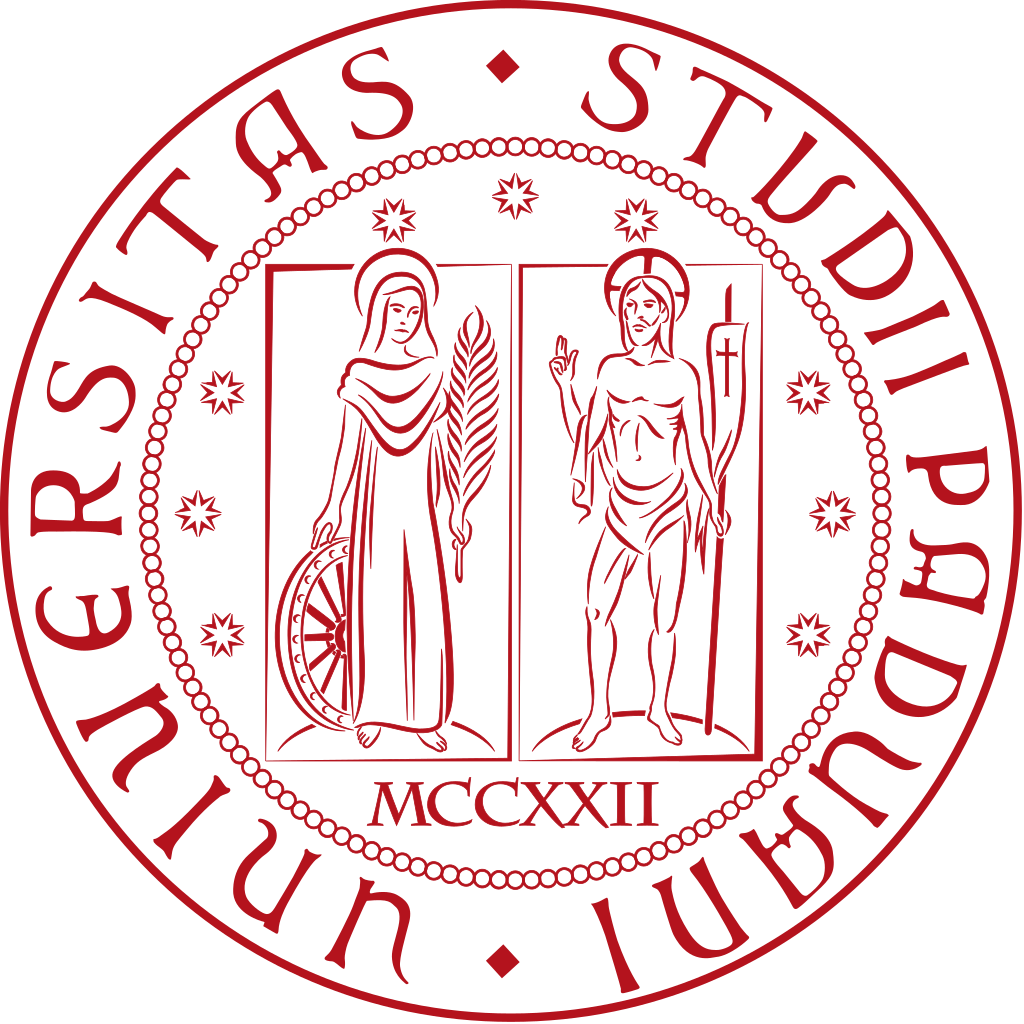
Dating back to 1222, the University of Padova (UniPD) is one of Europe’s oldest and most prestigious seats of learning. UniPD offers its students 32 departments, 37 doctoral degree courses, 2 international doctoral degree courses and 44 research and service centers across the spectrum of sciences, medicine, social sciences and humanities.
UniPD is one of the first subscribers of the Statement of Commitment for the implementation of the European Charter of Researchers and the Code of Conduct for the Recruitment of Researchers (C&C). The University was rewarded with the ‘HR Excellence in Research’ logo by the European Commission in February 2012.
The Department of Philosopy, Sociology, Education and Applied Psychology (FISPPA) was established on January 2012 and brings together scholars from various fields with the aim of developing interdisciplinary analyses of human experience in social contexts. Research topics mainly cover inter-cultural problems, analysis of social, educational and psychological processes in highly complex societies, individual choices and practices in sociohistorical and cultural contexts.

Prof. Ines Testoni is an Associate Professor with first-level qualification in Social Psychology at the FISPPA Department of the University of Padova. She is an expert in Death Education, psychologist, psychotherapist, filosopher and director of the post-graduate Master’s program “Death studies & the end of life”. Prof. Testoni is a research fellow of the Emili Sagol Creative Arts Therapies Research Center of the University of Haifa.
University of Haifa
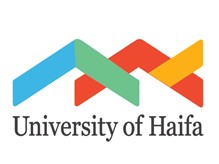
The University of Haifa, founded in 1963, is fully accredited university under the auspices of Israel’s Ministry of Education and the Israeli Council for Higher Education. The UH is recognized by the UNESCO-based International Association of Universities. The UH is a pluralistic institution, and an exemplary higher education establishment, where research and teaching are conducted in an atmosphere of mutual respect and inclusiveness. The UH’s distinctive mission is to foster academic excellence while maintaining a tolerant and multicultural learning environment. The UH is a leading university in Israel in the field of Creative Arts Therapies and is home to more than 18.000 students and over 750 scholars and scientists.
The School of Creative Arts Therapies at the UH is a leading institution worldwide in arts-based intervention programs and collaborates with health, welfare, rehabilitation and education services across Israel where arts are employed to enhance well-being and growth.

Prof. Hod Orkibi is a certified psychodramatist and a tenured Senior Lecturer at the School of Creative Arts Therapies, University of Haifa. His research includes drama, creativity, and wellbeing; psychodrama process and outcomes; and arts-based community rehabilitation. He has been awarded with several grant funds and has published in international outlest.
University of Klagenfurt

The Alpen-Adria-University Klagenfurt (AAU) is a young and innovative university, located at the intersection of three diverse cultures and is now home to 10.000 students and 1.500 members of staff who learn, teach and conduct research in 36 departments. Since its foundation in 1970, the AAU became an important hub for the acquisition, exchange and transfer of knowledge across the entire Alps-Adriatic Region. Every year, around 1.300 degree programmes and 400 university certificate programmes are completed. The AAU’s scientific achievements regularly earn national and international recognition. The projects carried out serve as an important impulse generators for the business location Carinthia. The AAU dedicated a whole research unit to research and teaching of palliative care with a dissertation field, which has been now integrated into the cluster of public health.
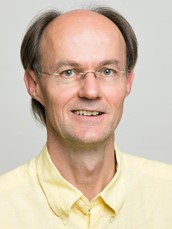
Prof. Michael Wieser is teaching and researching psychodrama therapy. He is a member of the executive management group of the International Association of Group Psychotherapy and Group Processes; vice president and honorary member of the Society Moreno Museum; member of some editorial boards; maintains the international psychodrama bibliography and is the holder of the Zerka T. Moreno Award.
Lucian Blaga University of Sibiu
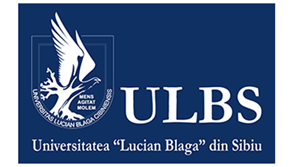
The Lucian Blaga University of Sibiu, Romania, is a classical university with nine faculties and more than 650 teachers in a broad multidisciplinary field, with more than 100 existing faculty specializations. The Lucian Blaga University of Sibiu promotes openness to novelty in its approximately 15.000 students. LBUS graduates acquire an academic and professional international acknowledgement from unique study programs committed to a constant quality improvement. Renowned research centers reside within LBUS and academic involvement in innovation adn technology transfer has already been highly appraised at various international competitions.

Prof. Mihaela Dana Bucuta is a certified psychodrama therapist, trainer and supervisor, President of the Romanian Association of Classical Psychodrama. She is a member in the national board Romanian National Strategy Against Depression and Suicide and the coordinator of the master degree program in Clinical Psychology, Psychological Counseling and Psychotherapy.
John Paul II Catholic University of Lublin

John Paul II Catholic University of Lublin, Poland (KUL), established in 1918, is the oldest Catholic university in East-Central Europe. KUL is one of the fastest developing universities of Poland, offering academic courses both for Polish and for international students. KUL hires 990 academic teachers and high qualified academic staff in diverse domains of science and teaches over 11.000 students in 59 fields of study. KUL is a member of international organizations and associations and was an initiator of the Eastern-European University Network composed of universities from Ukraine, Belarus, Moldova, Georgia and Poland which are united by a network of cooperation. KUL has been awarded with numerous certificates and prestigious titles and runs 92 projects funded from national and international entities.
The Psychology Institute (PI) of KUL is one of the most recognisable Polish academic units focusing on the psychologists’ professional education and scientific research. Since 1990s it is engaged with the psychosocial aspects of death, dying and grief processes by including them in the curriculum of PI students which lead to extensive research programmes focusing on the psychology of chronically ill patients, palliative care, psycho-oncology, euthanasia, death perception and attitude, meaning of life, psychology of pain, aging and coping with stress in illness. In 1997, in cooperation with the PI staff a pediatric hospice was established in Lublin which is now one of the leading institutions of this kind in Poland. The PI collaborates closely with the Polish Psycho-Oncology Association for a post-graduate programme in psycho-oncology.

Prof. Krysztof Cieplinski is a psychologist, certified psychodrama and integrative psychotherapist as well as a psychodrama trainer. He is a board member of the Polish Psychodrama Association, vice president of FEPTO and former Co-chair of the FEPTO Research Committee. He is experienced in providing psychotherapy based on psychodrama and action methods. His scientific publications focused on psychodrama outcomes and change process, positive and existential psychology and psychotherapy integration.
ANT Foundation

ANT Foundation is one of the largest European Organizations in the field of free home care for oncological patients and their families. ANT is a non-profit organization made up of a broad base of approximately 2.000 volunteers and a group of professionals who provide free home care service, 24 a day. Every day ANT assists almost 3.000 patients in 26 Italian provinces and 11 regions; since 1985 it helped over 125.860 patients. ANT does not only assist cancer patients at advanced stage, but also provides adequate support to their caregivers since the early stages of the disease. ANT action is founded on a solid ethical assumption: eubiosia, “the dignity of life until the last breath”. One of the main characteristics of the “ANT model” is having local health teams consisting of doctors with extensive experience in oncology and palliative care, in fact the health staff of ANT is composed of 224 physicians, 93 nurses, 34 psychologists and 15 other health care professionals. Moreover, ANT operates in the fields of cancer prevention, training and scientific research. Recently, ANT has been selected as European good practice in managing frailty and for the efficacy of our integrated assistance model by EIP-AHA Commission. In addition, ANT concluded a Memorandum of Unterstanding with the Italian Ministry of Health for the dissemination of the know-how on palliative care. Thus, ANT is engaged also in information and awareness campaigns, providing discussions about health, prevention and death education.
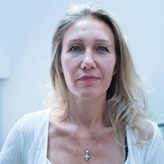
Dr. Silvia Varani is the National Coordinator of the Psychology Unit and responsible of the Training Department of ANT Foundation. She is a Psychologist and member of the Regional Executive Council of the Region of Emilia Romagna within the Italian Society of Palliative Care and the Italian Society of Psycho-Oncology. She coordinates the selection and training/scientific update of health care personnel. She published numerous publications in national and international scientific journals.

Luca Franchini has a Master of Science degree in Work and Organizational Psychology at the University of Padova. He works in the coordination office of Training and Scientific Development Department at the ANT Foundation. His work is the management, design and implementation of international projects. He is a member of the Society of Palliative Care and works as a psychologist for patients and caregivers who rely on the Foundation.

Melania Raccichini is a psychologist and works in Training and Scientific Development Department of ANT Foundation. She cooperates to organize training courses, both for professionals employed at the ANT Foundation as well as for school projects. Moreover, she is in charge of international project management.

